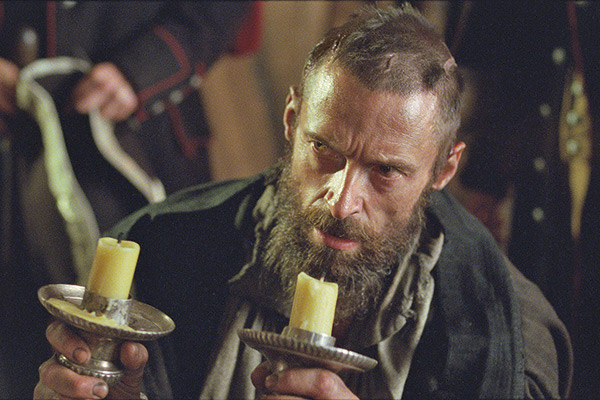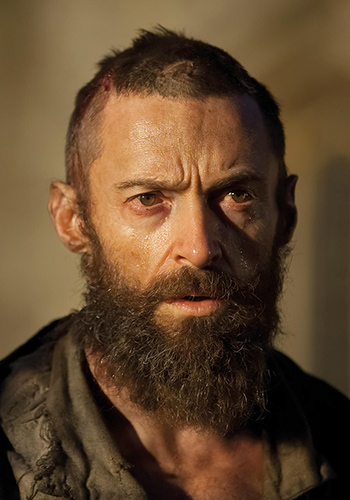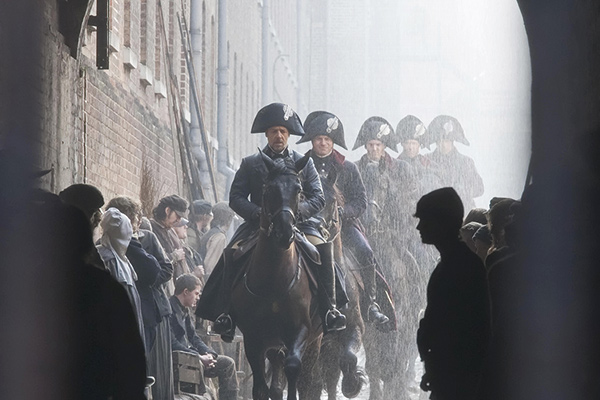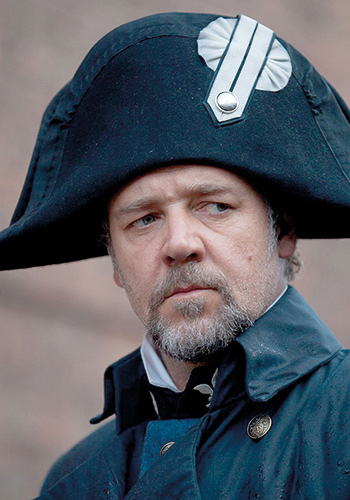Subtotal: $
Checkout-

A Vow Will Keep You
-

A Broken but Faithful Marriage
-

Can Love Take Sides?
-

A Defense of Vows
-

Why I Chose Poverty
-

Demystifying Chastity
-

The Adventure of Obedience
-

Vows of Baptism
-

Hutterite Ten Points of Baptism
-

The One Who Promises
-

Vows in Brief
-

The Raceless Gospel
-

Poem: “Blessing the Bells”
-

Poem: “Autumn in Chrysalis-Time”
-

Tiny Knights
-

Editors’ Picks: What Your Food Ate
-

Editors’ Picks: Untrustworthy
-

Editors’ Picks: The Last White Man
-

Retooling the Plough
-

Charting the Future of Pro-Life
-

Letters from Readers
-

Home in My Heart
-

Remembering Alice von Hildebrand
-

Sadhu Sundar Singh
-

Covering the Cover: The Vows That Bind
-

The Day No One Would Say the Nazis Were Bad
-

John Wayne, The Quiet Man
-

No Promises
-

Word Is Bond
-

Bring Back Hippocrates
-

The Dance of Devotion

Victor Hugo’s Masterpiece of Impossibility
In Les Misérables, competing vows reveal the paradox of grace.
By Caitrin Keiper
September 1, 2022
Available languages: Español
It is the only lie the holy bishop has ever told. Yes, he assures the police who come to him with a desperate convict and a fabulous story, he did give Jean Valjean the silver he was found with, the silver everyone there knows perfectly well that Valjean stole. In fact, he adds to Valjean, thinking quickly, here are two candlesticks (his only prized possessions); “would you leave the best behind?” he sings in the musical version of Victor Hugo’s Les Misérables.
Having thus cemented the story and convinced the police to go away, the bishop makes his true purpose known: “But remember this, my brother. See in this some higher plan. You must use this precious silver to become an honest man,” he continues. “God has raised you out of darkness. I have bought your soul for God.” Even as he sings of raising up, his voice descends to the deep, as if reenacting Christ’s harrowing of hell for one poor soul.

Hugh Jackman as Jean Valjean in the 2012 film version of Les Misérables directed by Tom Hooper Photo 12 / Alamy Stock Photo. Used by permission.
The one poor soul stands reeling as the turntable (a central feature of the original stage set) whisks the bishop away. Alone, Valjean confronts what he was and thought he knew – “For I had come to hate the world. The world that always hated me!” – and this new revelation: “He told me that I have a soul. How does he know? What spirit comes to move my life? Is there another way to go?” Toppled off his axis, he trembles:
I am reaching, but I fall,
And the night is closing in,
And I stare into the void,
To the whirlpool of my sin.
But instead of plunging in, he is caught by mercy and flung back up toward God. This conversion propels the rest of the action. As Valjean, he disappears, and under new names he devotes his life to others. He rebuilds a struggling town, gives many alms, saves an injured man, shows compassion to a friendless woman, rescues her young child. Most of these acts are at least somewhat joyful or gratifying, but then there are the others where he must die to self: he gives himself up for a man mistaken for him who is being sent back to prison in his place; he endangers his own life to protect the man his daughter loves, the one who will take her away from him; he frees the man who has been hunting him and volunteers to be arrested.
As the turntable spins, the cycles of misery and oppression yielding endless iterations, while the revolution meant to break out of them revolves back on itself, the true forward motion comes from this moment when a soul at one still point in time makes contact with eternity.
In the book, this is not what happens.
In the book, after the bishop pardons him, the first thing Valjean does as a free man is, pointlessly, another crime. Troubled but not yet transformed, and now in possession of more wealth than he ever saw in his life, he nabs a coin from a little boy scampering in the forest. The boy pleads for it back while Valjean stands there and glowers. Eventually he scares the boy away. Belatedly overwhelmed by what he’s done, he tries to run after the boy to make it right, but cannot find him. Then he has his crisis of conscience. Kneeling unseen outside the bishop’s door, he embraces a redemption that cost him nothing but will ask of him everything.

Hugh Jackman as Jean Valjean (2012 film) PictureLux / The Hollywood Archive / Alamy Stock Photo. Used by permission.
What must the bishop think when he learns what has happened? Everyone would soon hear of the boy robbed by a stranger; no one could know of Valjean’s repentance and his hidden life of service. From this point, the detective Javert will begin to track him from one secret identity to the next, convinced his life of crime must be ongoing – and as far as the bishop can know for sure, this isn’t wrong. If the bishop were forced to put together such a thing as a philanthropic impact statement, he would have to report the waste of his resources on a recidivist. The sister and the housekeeper who live with him, suspicious from the start, will surely take every opportunity to say they told him so. “For a long time I have wrongfully been withholding this silver. It belonged to the poor. Who was this man? A poor man, quite clearly,” he placidly explained to them after the initial theft was discovered; but now, after this generous second chance? After Valjean betrays his “promise”?
The promise, as the book describes it, was made prior to his own knowledge of it: “Do not forget, ever, that you have promised me to use this silver to become an honest man,” the bishop said. “Jean Valjean, who had no recollection of any such promise, stood dumbfounded,” writes Hugo. It seems the bishop has somehow vowed this on Valjean’s behalf, which is impossible. But in that very impossibility lies the reason why all this is irrelevant to the grace the bishop has offered, and even why the outcome is not his to know.

PictureLux / The Hollywood Archive / Alamy Stock Photo. Used by permission.
The vicarious vow in the book is one step further than the simple command to go and sin no more of the musical, but in both versions, the bishop elaborates on this transaction with the language of a purchase, speaking of “buying” Valjean’s soul: “I withdraw it from dark thoughts and the spirit of perdition, and I give it to God,” he says in the book. This purchase can only be vicarious, for souls cannot be paid for from their own bankrupt accounts. The debt that this creates cannot be repaid to the creditor, but must be satisfied another way.
In the Parable of the Unmerciful Servant (Matt. 18:21–35), a man is forgiven a great sum by his master, but for a small debt owed in turn to him, he throws the debtor into prison. The master hauls him up and asks why he could not show the same mercy that was shown to him. This is the only requirement that mercy has. The bishop knows he is just another sinner whose soul was once paid for too. What can he do but extend the same to Valjean? It is a contract with grace, a gift that demands only that it be re-given.
The contract with grace is a line pointing onward, stretching to infinity as it is passed on from one person to the next.
Rather than a voluntary and symmetrical arrangement between two parties, the contract with grace is a line pointing onward, stretching to infinity as it is passed on from one person to the next. It is not binding so much as it is liberating; unbound from “dark thoughts and the spirit of perdition,” Valjean has the freedom to do anything, even reject it (as someone later will). But as long as Valjean proceeds within this line of grace, and after he embraces the vow himself in his conversion, it invisibly supports him. Having always been noted for his supreme physical strength, he finds a matching spiritual strength to do what’s right, and make impossible self-sacrifices when they’re called for. “My soul belongs to God, I know, I made that bargain long ago. He gave me hope when hope was gone, he gave me strength to journey on,” he recalls at one anguished moment in the musical, mustering his will to match his conscience.
In the book, after the bishop dies (and presumably is glad to finally learn the truth), Valjean often draws inspiration from the sense that he is looking down on him, “that men could see his mask, but the bishop saw his face.” In life as in death, the bishop is the only one who ever really saw his face at all, from which others “would have erased from that existence the word that the finger of God has nonetheless written on the brow of everyone – Hope!”

Russell Crowe as Javert (2012 film) Pictorial Press Ltd / Alamy Stock Photo. Used by permission.
“Everyone” includes a character perhaps even less likely than Valjean to be imprinted with this word, someone whose spiritual capacity seems to fall well outside it. Someone who doesn’t even have a Christian name but only the surname Javert. Someone who must be the least, and therefore most, likely person Valjean would be expected to confront with grace.
“There is a way of avoiding a person that resembles a search,” Hugo observes in the book. As the June Rebellion of 1832 takes shape in the streets of Paris, Valjean and Javert catch up to each other at the barricades, where Valjean has stationed himself to help his daughter’s lover, Marius, and Javert has gone undercover to spy on the revolutionaries. When Javert is found out and sentenced to death by their leader, Enjolras, Valjean takes the opportunity to settle several debts at once. For Enjolras’s debt of gratitude to him for his valor and protection in the battle, he secures custody of Javert; for his debt to the law that he broke long ago, he surrenders his address and future liberty; and for Javert’s debt to him, for hounding him throughout his life and undoing any hope of earthly happiness, Valjean “takes his revenge” and undoes Javert himself. Laying his life at Javert’s feet, Valjean lets him walk free.
A word in defense of our villain, the indefatigable Inspector Javert. His character in both the book and the musical is defined by the law, a law meant to control the vice and disorder spread by such people as the con man Thénardier and his cronies, and even Javert’s own parents. He considers himself as having crawled up from the mire of sin into which he was born onto a plane where order is maintained, a civilization churning along atop its filthy sewers. In the musical, Javert sings in perfect fourths and fifths, fixed intervals with no possibility of modulation. He believes in a truth as firm and absolute as stars, “filling the darkness with order and light.” And like the stars above, Javert’s commitment to this ideal transcends his own interests: at one point in the book he turns himself in for an infraction against his vow to the law: “In my life I have often been severe toward others. It was just. I was right. Now if I were not severe toward myself, all I have justly done would have become injustice. Should I spare myself more than others? No. You see! If I had been eager only to punish others and not myself, that would have been despicable! … Good God, it is easy to be kind, the difficulty is to be just.”
As noble causes go, the law would be a fine one, if the law were just.
That is the difficulty indeed. As noble causes go, the law would be a fine one, if the law were just. “Do not think that I have come to abolish the law,” said Jesus; “I have come not to abolish but to fulfill” (Matt. 5:17). But Javert’s target is not Thénardier but Valjean, his law itself inflicts injustice, and Jesus’ version of fulfillment is the very thing he cannot stand. When Valjean’s pardon gives him a glimpse of it, he is aghast. Writes Hugo:
Javert had never seen the unknown except below. The irregular, the unexpected, the disorderly opening of chaos, the possible slipping into an abyss; all of that belonged to inferior regions, to the rebellious, the wicked, the miserable. Now Javert was thrown over backward, and he was startled by this monstrous apparition: a gulf above him.
Reeling at the possibility that goodness is as fathomless as evil, Javert stares “into the void of a world that cannot hold,” as he sings in the musical’s reprise of Valjean’s conversion song. Of one thing he remains certain:
I am the law and the law is not mocked!
I’ll spit his pity right back in his face.
There is nothing on earth that we share:
It is either Valjean or Javert!
But of course there is everything that they share, even the syllables of their names in reverse. Each has spent his life in relation to the other. Each is bound to a principle greater than himself. Each of them, like the bishop, like the unmerciful servant, like anyone, is a sinner in need of grace.
Javert does not want it. The contract ends with him. And yet.
As with Valjean’s encounter with grace before it, there is one little detail that complicates this event. Just as when Valjean is sent forth to a new life and instead steals a coin, he does “a thing of which he was no longer capable,” Javert now does something of which he was not capable before. When they meet again outside the barricades, Javert moves to arrest Valjean but ultimately lets him go. Javert, who “would have arrested his own father if he escaped from prison and turned in his own mother for breaking parole,” cannot bring himself to punish the man he now owes a debt of life. As Hugo writes, “to sacrifice duty, that general obligation, to personal motives, and to feel in these motives something general too, and perhaps superior,” goes against everything in him, but that is what he does.

Photo 12 / Alamy Stock Photo. Used by permission.
It seems that Javert also has a living soul of which he had been unaware. But rather than reckon with what it is trying to tell him or reconcile the paradox of it all, Javert chooses annihilation. He looks into the face of mercy and then jumps into the Seine.
Meanwhile, Valjean, whose forgiveness of Javert cost him more dearly than the bishop’s gift of candlesticks did him, does not know what comes of it either, and spends the final stretch of his life expecting an arrest at any time. This act of grace, even more so than the bishop’s, might truly seem to be a waste. At least, the meaning is obscure. But like Christ’s own grace, not universally accepted but freely given from one moment into all of time, it is offered in faith that it is not meaningless.
Much of what happens in Les Misérables seems, in the immediate sense, just as futile. The revolution is an abject failure. Its leaders give their lives for nothing. The world turns, the cycle repeats, “round and round and back where you began,” as the surviving witnesses to the revolution sing in resignation.
When the book was first published in 1862, poet and politician Alphonse de Lamartine criticized it as a “masterpiece of impossibility” and a “dangerous” story, “because everything is impossible in the aspirations of Les Misérables, and the main impossibility is that all our suffering will disappear.” But for whom among the miserables does suffering disappear? Rather, the book hit a nerve in this frustrated former progressive. Bitterly, he said, “If we sow ideal and impossible thoughts in the masses, we reap the sacred fury of their disillusionment,” evidently speaking for himself.
According to Hugo, the answer to such disillusionment lies above us:
Shall we continue to look upwards? Is the light we can see in the sky one of those that will presently be extinguished? The ideal is terrifying to behold, lost as it is in the depths, small, isolated, a pin-point, brilliant but threatened on all sides by the dark forces that surround it: nevertheless, no more in danger than a star in the jaws of the clouds.
The stars that Javert swore by, and yet was so astonished to witness in the gulf above him, the stars that illumined Valjean’s vow made at the beginning and Javert’s vow broken at the end, are a promise made by heaven, immovable in the firmament. But still they are distant, and often obscured.
Contra Lamartine, the main impossibility in the ideal of Les Misérables is not that suffering will disappear, but that it can be redeemed; that brokenness does not erase the hope in any person; that dormant souls come back to life; that the cycle of retribution breaks for grace. And for symbolic confirmation of this impossible reality, there is an intimation of the stars on earth – that is, candles.
Valjean treasures the bishop’s candlesticks for his entire life. Their candlelight shines upon his face as he dies. Such little stars on earth have a secret power even the stars above do not: they can ignite each other, one to the next to the next ad infinitum, without losing their own light. So Jean Valjean, entrusted with his candlesticks, carried them through life and lit the way for others; and coming finally to rest, he passed the flame.
Already a subscriber? Sign in
Try 3 months of unlimited access. Start your FREE TRIAL today. Cancel anytime.











































Jacob Taylor
Excellent essay. Lovely insights and a beautiful reminder to the grace of this great story of redemption.
Gina
Wonderful essay. When I was a teenager reading Les Miserables for the first time, I was distressed by Valjean's theft of the coin, thinking it somehow took away from the redemption story. Now I see the genius of it.
Chris Kingsley
I used to think the bishop lied in saying he had given the candlesticks also. But no, it’s better than that! I don’t recall if the musical or film have the line, but in the book (book II, chap III) the bishop says to Valjean: “Everything here is yours.” People say stuff like that all the time. This bishop really meant it.
Maryann Hobbie
Thank you so much for this beautiful essay, for calling attention to the profoundness of grace. Les Mis was required summer reading in high school…how I wish i could remember the discussions that followed in that fall. But by this fall of my life, 50 years later, I have been listening to the 2012 soundtrack and look foreword to sitting still and soaking in the film again. Thank you for your depth, clarity, comparison and contrast. I have savored this essay twice, and will go back for a third helping.
Mary Martin
A wonderful essay. Thank you for the careful reading and interpretation. I have the idea that the film of Les Mis (of course a lesser version than the play or book) might be shown in prisons (for those willing to view) and talked about in discussion groups.
Walter (Jerry) Kendall
Thanks quite interesting. The movie led me to read several biographies of Hugo. Also visited his house/museum in Paris. I think in addition Tom”grace” the book would make a good subject for all beginning law students. I wish I had that thought sooner; before I retired after 40 years at now UIC John Marshall Law School